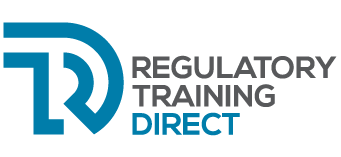current affairs
Issue 247, 5th May – 17th June 2024
4
Training news
USA: 5.01. Dietary supplements. Presented by a leading industry law firm, this on-line course is available on demand and can be completed in your own time. Topics include ingredient requirements, labelling, quality and safety. The investment is only AUD$750, (USD$495). See details and book here
1.06. Stability testing. This highly popular course has been expanded to include more practical examples and templates that can be used in-house. Recent attendees have been impressed with the interactive dicussions and real world insights from our GMP expert Andrew Lattimore. See details and book here
1.09. Preparing and submitting a listed medicine application. This course includes a hands-on practical example of how to complete the on-line form for a listed complementary medicine. Of particular importance are prerequisites for listing and the level of detail required for herbal substances. See details and book here
All our courses can be viewed here and booked online here
Regulatory affairs news
Complementary Medicines and Medical Devices:
New ingredients permitted in listed medicines. The new permitted ingredients determination came into force on the 14th June. One new active ingredient (Bacillus subtilis), four new excipients and changes to four ingredients already permitted. A list of the nine ingredients is here and the new permitted ingredients determination can be found here.
Assessed listed medicines evidence guidelines. Revised 13th June. Applies to Assessed listed medicines, not listed medicines. Go here to choose either MS Word or PDF version.
PIC/S Guide to GMP – a newer version now applies. The update includes clarifications to Annex 13, and a new Annex 69 – Authorised person and batch release. The guide applies to the manufacture of all medicines, APIs and sunscreens. Annex 16 will apply to all therapeutic goods manufactured from 3rd September 2024. Source: TGA.
TGA GMP Forum. 19th – 20th November in Melbourne. Details here
Compounded weight loss medicines. A fact sheet explaining the role of compounding pharmacies and how the actions of some compounding pharmacists are illegal. Source:TGA blog
Monitoring the safety of therapeutic goods. A fact sheet including details on medical devices and medicines. Source: TGA blog.
Vacancies on TGA advisory committees. TGA is still seeking part time committee members. Details here
Regulation of software based medical devices. A new flowchart to explain the regulatory process. Source: TGA
Poisons standard. The latest version June 2024 has just been posted. And here is the explanatory statement summarising the changes.
Nicotine entry in the poisons standard. Changes in relation to an aid in withdrawal either from tobacco smoking or nicotine vaping. To view the details and the reasons for the changes, go here and select either PDF or MS Word format.
TGA transformation. TGA newsletter explains action being taken to improve engagement with stakeholders and access to business transactions. This webpage contains two webinars recently conducted and has a link to subscribe to the regular newsletter.
Product Defect Alert. Philips A30 and A40 series bi-level positive airway pressure (BiPAP) devices – may stop providing therapy on an intermittent or permanent basis and the ‘Ventilator Inoperative’ alarm will sound. Source: TGA
Compliance action
* Director of Elite Labs, Ryan Gregory McTeigue, sentenced to 2 years imprisonment for his role in unlawful manufacture, supply, advertising and export of performance enhancing medicines. Sentence suspended for two years with the requirement he be of good behaviour for a period of 2 years, and not export, manufacture, advertise or supply therapeutic goods. Source: TGA.
* Myers Pharmacy fined $18,780 for alleged unlawful adverising of Ozempic, a prescription-only medicine that cannot be advertised to the public. Source: TGA
* Better Leaf issued with 11 infringement notices totally $171,972 for unlawful advertising of medicinal cannabis on website and social media, for treatment of serious conditions such as PTSD and epilepsy. Source: TGA
Safety alerts. Persistent sexual dysfunction for antidepressants – may persist after the treatment is stopped. Source: TGA
Consultations – Updates to Australian medicine labels. TGA seeks feedback on proposed changes to labels to ensure that information important to health professionals is displayed clearly and in the appropriate format. This will affect both prescription and non-prescription medicines (includes complementary medicines). Includes warnings on listed medicines about large solid oral dosage forms intended to be swallowed whole that may present a choking hazard. Closes 11th July. Details here and here.
National Symposium on Australian Traditional Medicine. This will be held at the NICM Research Institute, Western Sydney University, on 11th-12th November 2024. Full details at westernsydney.edu.au
Botanical Adulterants Prevention Programme and other adulteration stories.
* This comprehensive article details laboratory methods to detect adulteration of St. John’s wort (Hypericum perforatum). Source: BAPP
* Undisclosed excipients and diluents in botanical extracts – (editor’s note: written with USA dietary supplements in mind, but in Australia these products are complementary medicines and any excipients and diluents must be disclosed on your application to the TGA and in the finished product specification! If you want to learn more about specifications book our course here.) Read the BAPP article here.
To access freely available botanical and technical resources from BAPP, click here
New Zealand
Update on the repeal of the Therapeutic Products Act.
* The proposed new Therapeutic Products Act (TPA) will be repealed before the end of 2024. This means that none of the provisions in the TPA will come into force, and the existing Medicines Act 1981 and regulations will continue to apply to medicines and medical devices. Likewise, the Dietary Supplements Regulations 1985 will continue to set composition and labelling requirements for some natural health products.
* The Government has asked the Ministry to develop options for modern, risk-proportionate, fit for purpose regulation of these products that could replace the current outdated system and report back by the end of this year. The Government will then decide on the elements of future legislation for medicines, medical devices and natural health products.
* The Government has recently agreed to proactively release several documents relating to the repeal of the TPA.
Source: this is taken from a newsletter issued by the NZ Government MInistry of Health, however the editor of this newsletter could not find this information on the Ministry of Health website.
In the press:
Government bans replicas of weight loss drug Ozempic, as vision of raid on filthy lab released. This article discusses the controversy over the commercial scale illegally manufactured copies of Ozempic which have been exported globally. Compounding phamacy for indidual patients is legal for a medically prescribed drug which is not available locally. It was never intended to be used as a way of manufacturing bulk quantites of finished products. This article contains some very shocking photos of the conditions under which the product was manufacrured. Source: ABC news.
Foods:
The Australian Government has provided NHMRC with $2.5 million in funding to review the 2013 Australian Dietary Guidelines, for people aged 65+ years and for Aboriginal amd Torres Strait people aged 50+ years. Source: National Health and Medical Research Council.
Standard 3.2.2A of the Food Standards Code applies to businesses that sell or serve unpackaged food requiring temperature control directly to consumers. School canteens, childcare centres, supermarkets and a range of other retail food businesses have 6 months to meet new requirements. Source: NSW Food Authority. More information and guidance here.
Standard P1028 – Infant Formula. The FSANZ Board approved variations on 4 June 2024. These are being considered by Australian and New Zealand food ministers, with a final decision anticipated by late August 2024. You can find details and links to resource documents, reports and supporting documents on FSANZ website.
Avian influenza (bird flu). Is not a food safety concern and it is safe to eat properly handled and cooked chicken meat, eggs and egg products. There is no evidence to show the virus can be transmitted to people through properly prepared food. Source: FSANZ
Survey revels consumer attitudes to food safety in Australia and New Zealand. Key findings:
• 72% of people have confidence in the safety of the food supply, with farmers and food producers the most trusted sector in the food system (83%).
• 70% of people trust mandatory back-of-pack food labelling like the nutrition information panel and ingredients list, but have less trust in voluntary front-of-pack labelling such as claims about health benefits (40%) .
• 73% of consumers reported putting effort into maintaining a healthy diet, with people looking for food labels that can help identify nutritious food.
• 59% of consumers nominated foodborne illness as their key food safety concern.
Source: FSANZ
Calls for comment. FSANZ is calling for comment on a proposal to make minor amendments to the Australia New Zealand Food Standards Code. Read more here.
Call for submissions – Proposal P1063 – Code revision (2024) – added sugar(s) claims. To amend the Code to remove “sugars’, and amend the table entry dealing with “Sugar or sugars” in section S4-3. FSANZ invites written submissions on the assessment of the following proposal by 6pm (Canberra time) 27 June 2024. Source: FSANZ
Collaboration in Food Regulation: Working together for impact. The biennial FSANZ Stakeholder Forum will be held at the InterContinental Melbourne The Rialto on 20 June 2024. Read more and buy tickets for the livestream here.
Recalls
* Indya Foods – Ashok Palak Paneer due to presence of undeclared allergen (cashew)Source: NSW Food Authority
* Indya foods – Everest Fish Curry Masala – due to chemical (ethylene oxide) contamination Source: FSANZ
* Primo Mild Salami 25% Less Salt due to presence of undeclared allergen (milk). Source: NSW Food Authority
* O’Food Korean Bbq Bulgogi Beef Marinade and O’Food Korean BBQ Spicy Pork Marinade due to incorrect gluten free claim. Source: NSW Food Authority
Westmont Beer Pickles due to presence of foreign matter (glass). Source: NSW Food Authority
* Australian Crocodile Traders – Crocodile Feet products – Crocodile Feet, and Croc Bone in Leg Feet and Skin – due to the presence of foreign matter (metal) Source: NSW Food Authority
* Bathurst Meals on Wheels Service – Steamed Barramundi with Lemon Sauce – Mini meal and Main Meal – due to the presence of an undeclared allergen (milk). Source: NSW Food Authority
* StrangeLove Beverage Company – Salted Grapefruit – due to unintended fermentation resulting in the presence of alcohol and increased carbonation, which may result in bottle breakage or popping caps which may cause illness or injury. Source: NSW Food Authority
* White Lies Brewing Company – Hazy Crazy Sessions – due to seconday fermentation – excess alcohol and carbonation may cause illness/injury if consumed. Source: FSANZ
* Flinders Mussels – Live Flinders Mussels – due to biotoxin (Gymnodinium catenatum) contamination. Source: FSANZ
* Leslie’s Clover Chips Barbecue Corn Snacks – due to the pesence of undeclared allergen (gluten) Source: FSANZ
More food news supplied by Gary Kennedy of Correct Food Systems
“We are drowning in waste”: Federal Plastics Inquiry Committee Tables Report on Plastic Pollution.
The Plastic Pollution in Australia’s Oceans and Waterways Committee’s Chair Tony Zappia MP this week tabled the Committee’s report in Parliament, noting: “Without urgent action, plastic waste will increase and continue to negatively impact our oceans and waterways. Australia needs to act now to protect its natural environment for future generations”.
Included in the recommendations were:
* A call to consider nationwide expansion of CDS (Container Deposit Scheme) into milk, (large) juice, wine and spirits bottles.
* A recommendation to investigate the application of a levy on the use of virgin polymers to ensure that plastics are made from at least 30 per cent recycled content, with the minimum percentage to be increased progressively.
* A recommendation to commission comprehensive research to determine the impacts of microplastic ingestion, inhalation and skin contact on human health, including any absorbed toxins, to be made available by July 2026.
SOUTH AUSTRALIA: Single use plastics ban confirmed for September.
South Australia has confirmed the next tranche of single use plastics bans which will come into effect from 1 September 2024. Items covered in the ban include:
* Single-use plastic beverage plugs/stoppers.
* Non-compostable single-use plastic food containers and their lids/seals/windows for ‘ready-to-eat’ food.
* All plastic shopping bags with handles.
* Non-compostable plastic produce bags for all unpackaged fruit, vegetables, nuts, and confectionary.
* Plastic bread tags and similar food bag tags.
* Non-compostable single-use plastic beverage cups and their lids/seals.
* Expanded polystyrene (EPS) trays.
* Plastic confetti.
* Plastic balloon sticks and ties.
* Non-compostable single-use plastic bowls.
In addition, SA has confirmed that the mechanically attached straw exemption will end on 1 September 2025.
Cosmetics and TGA listed sunscreens:
Primary sunscreens testing and labelling update. To align with recent changes to Australian/New Zealand Standard for the evaluation and classification of sunscreen products. Amendment to legislation can be found here.
New online tool offers an easier way to calculate an introduction’s human health categorisation volume. Helpful for working out your introduction’s human health exposure band at step 4.3 of the Categorisation Guide. Explanatory notes here and the “human health categorisation volume calculator” is here.
New search tool:
* search chemicals on the Inventory
* search chemical assessments and evaluations
* search guidance, content, news and notices
* search registered businesses
* search the risk-management recommendations register
AICIS invites you to try the new tool and priovide comments. Read more here
Variation of inventory listing following revocatin of confidential business information approval: CAS 3034748-74-5 (various tannins and poilymers). Source: AICIS
Chemicals added to the Inventory 5 years after issue of assessment certificate (obligations to provide information apply)
20th May: five chemicals: CAS 2231638-79-0, CAS 92815-96-8, CAS 1619919-52-6, CAS 63089-86-1, CAS 2256746-49-1.
30th May: three chemicals: CAS 1350746-64-3, CAS 381686-36-8, CAS 91744-39-7. Source: AICIS
Chemicals added to the inventory following issue of assessment certificate (early listing) as at 24th May:
* Siloxanes and Silicones, di-Me, vinyl group-terminated, polymers with alkyl acrylate and branched alkyl acrylate – a component of lubricants
*CAS 71119-07-8 Phenol, 2-ethoxy-4-(ethoxymethyl)- dor use ion fragrances, cosmetics amnd household products (limits apply)
Source: AICIS
Cosmetics compliance
MCoBeauty issues recall over popular beauty product sold at Woolies. MCoBeauty LipLight Lip Shine Gloss contain an LED light in the lid, along with a built-in mirror. According to this article “Batch A23A07 was found to “not comply with the mandatory safety standards for products containing button batteries”, according to an alert sent out by Product Saftey Australia. “The button/coin batteries are not adequately secured and are accessible to young children,” “There is a risk of choking or serious injury if young children gain access to the button/coin batteries and swallow or place them inside their body.” Published in News.com.au
ACCC and similar:
ACCC has raised concerns about the proposed acquistion of Chemist Warehouse Group by Sigma Healthcare. The merger of the largest pharmacy chain with the major wholesaler to thousands of independent pharmacies that compete against Chemists Warehouse may lessen compatition. ACCC is inviting submissions – deadline 27th June. Source: ACCC
MasterChef grilled in greenwashing inquiry over controversial gas sponsorship deal. A senate enquiry questioned the TV show’s claims about biomethane and hydroegn and its availblity to households. MasterChef came under fire last month when its 16th season aired with official sponsors including the gas grid operator, Australian Gas Network (AGN).
Environmental groups labelled it cynical greenwashing. Source: ABC News
Published by Regulatory Training Direct www.regulatorytrainingdirect.com
Providing regulatory training courses for complementary medicines, GMP, foods, cosmetics dietary supplements.



